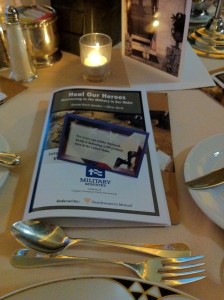Lately the issue of intellectual property has popped up to near the top of issues in libertarian circles, especially as it related to information, emulation and society. Though the emphasis appears to be on the side of the consumer (and of society), it is worth noting that whenever and wherever the state intervenes in the spread of information though IP legislation, the effect reaches entrepreneurs and managers and even venture capitalists and other investors. Entire areas of “common knowledge” can be wiped.
The mere existence of the state provides us with the most extreme example: there are no true markets–much less developed markets–for private courts and restitution companies. Sure, there is private police and mediation and arbitration but those still operate under the watchful eye of the state. Because the state has completely monopolized these “services,” there is no incentive for innovators and researchers to enter this field and offer services in a competitive environment. Thus, the result is literally a completely atrophied field of human knowledge (not counting armchair theorizers).
Prohibition gives us another perhaps less dramatic example. What sort of innovations could have been openly tested when alcohol was banned in the US? (When I mean innovation I am being very broad and want to include things beyond the actual product such as marketing campaigns, managerial developments in particular product development, distribution strategies and so on). One has to remember that prohibitions eliminate not just the actual product from the market. It also eliminates acting on the knowledge that surrounds all of the market operations of that product.
Some years ago a European friend of mine told me that because firearms are near completely banned in most places, there is no “gun culture.” When homeschooling is banned, fewer people think about homeschooling. Given enough time, most folks will probably think it normal for the state to handle education and will frown upon those who want to consider other options.
IP legislation bans certain patterns and processes from being freely used by non-authorized agents. It bans actual products, but it more explicitly bans information to be used for similar or other purposes. Like prohibition, IP legislation reduces the quality and amount of information that would have been otherwise available for other entrepreneurs to use. Indeed, imagine that you are on the floor of a stock exchange and it’s your first day. You learn that there exists a government-granted monopoly on the idea that “a forecast of drought in the midwest can increase the price of corn.” You are a commodities trader in charge of corn but it’s illegal for you to trade based on that knowledge. You look at the latest forecast and looks like a drought might hit this year. As a trader, you are now forbidden to act on that knowledge. Intellectual property legislation has a similar stifling effect on ideas and entrepreneurial knowledge. If affects end users of course, but also those in charge of providing humanity with the endless number of goods and services that we desire.
Patent law hinders building on existing efforts, forcing us to bypass the patent (thereby drawing resources otherwise available elsewhere) or to license it (adding a cost to the product or service), or finding other routes (again, incurring a cost). Like all state intervention in the market, IP legislation bans not just the proverbial wheel but also disrupts the knowledge transfer mechanisms which are essential to civilization itself.


 …
…